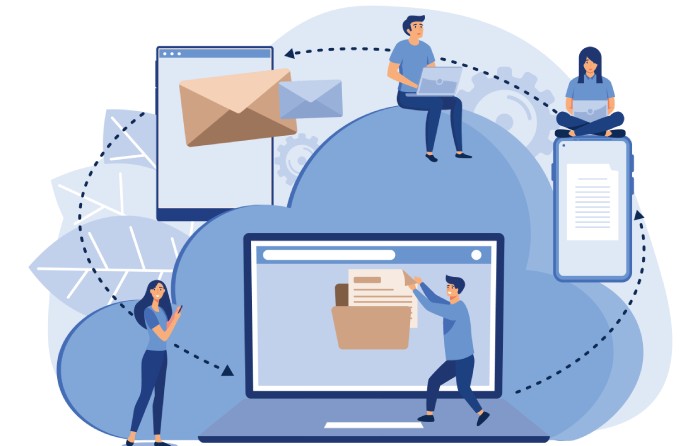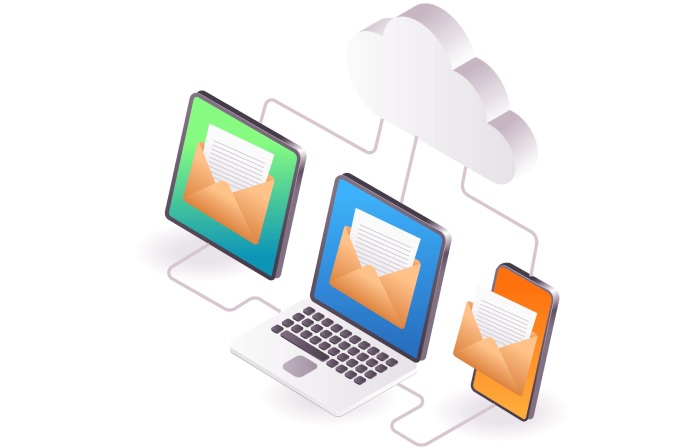To protect critical data from being lost, a system for data protection, recovery, and retrieval was established; the system is popularly known as email archiving.
Email archiving should be a significant aspect of the data management and protection policy for any organization. Emails are the global form of communications and thus, a vulnerable entry point and a popular vector for cyber attacks. Although the primary purpose of email archiving is to protect the emails, IT experts believe it to be more important than just that.
Email archiving is an essential compliance system, where it is mandatory to comply with the regulatory requirements of the system. Enterprises need the system not only for their convenience but also because governments around the world and authority bodies in almost all industries have strict regulations about data retention.
For instance, Financial Industry Regulatory Authority (FINRA), a regulatory authority in the financial industry in the US, requires organizations to maintain copies of all their activities and communication with their clients or any other business-related emails. Likewise, in the healthcare sector, all organizations under the Health Insurance Portability and Accountability Act of 1996 (HIPAA) are bound to stringent data storage requirements.
Email Archiving And Business Growth
Email archiving may sound like something that a hyper-cautious owner may insist on using or a process that is useful only for legal cases that an organization may have. However, its significance to any business is much more than that. Some of the ways by which email archiving helps in business growth are as follows:
Improved Productivity In Organizations
Locating and recovering old emails from the inbox used to be the job of IT staff; but, after email archiving procedures come into existence along with a self-help portal, any user can easily take on this task. As a result, end-user productivity increases, and that also alleviates IT tickets, resulting in a boost in IT productivity.
Insurance Of Data Security As Well As Data Availability
It’s crucial to make sure of data security and availability to ensure business continuity. Most of the time, insufficient dedicated resources and strategy become common issues for small organizations.
A secure, flexible, protected, and cloud-based central email repository that works by ingesting live email right from the specific primary mail platform can address this issue.
Users can access the email archive from anywhere even in case of some failure on their primary mail platform, thus ensuring business continuity to a great extent. Email archiving also improves the availability of emails during migration.
Email archiving also helps in facilitating email data management. Moreover, this technique also boosts the performance of the primary mail solution.
Why Organizations Should Use Archiving Platforms
- Archiving is a great option when it comes to data retrieval requests for legal purposes.
- Archiving your data ensures compliance with regulatory requirements and other internal record retention policies.
- Storage management is another practical benefit. Usage of a third party system dramatically reduces the stress on mailbox quotas.
- Archiving helps in better and faster email server consistency and performance.
- Data management and archiving are essential for accurate record-keeping of business history. Email archiving preserves the contents of emails, including critical decision making, customer prospects, business partners, financial dealings, etc.
- Email archiving provides a means for easy access to specific messages from among thousands of emails for the end-user and thus increase the productivity of employees in an organization.
- To help with any litigation case involving relevant content from email data.
Challenges Of Traditional Email Management
As useful as they are, the traditional methods of email management and archiving have their shortfalls and challenges.
As of 2017, enterprises and individuals around the globe exchanged 269 billion emails daily. There is no doubt that with new emerging businesses, this figure is going to increase every year. With the use of email archiving, an organization can preserve their email data for a prolonged period. The functioning of data archiving in emails is indispensable to many organizations.
However, when it comes to IT solutions, we are rushing away from the traditional methods towards the cloud. This trend is real for email archiving, too. With the conventional email archiving system, the initial cost, in case of on-premise archiving, is high since an organization has to purchase the archiving hardware. Archiving also requires a dedicated human resource or admin. Moreover, cloud-based archiving vendors have a significant advantage over traditional email archiving solutions providers – the ability to offer free trials, which are near impossible with the conventional methods.
A New Outlook To Email Archiving
The traditional methods of email archiving are becoming outdated and rustic when compared to newer technologies like cloud-based email archiving and compliant archiving. These new versions in email archiving are a solution to the inadequacies of traditional methods and have helped tremendously in boosting the productivity of many organizations.
- The primary process of traditional email archiving is not quite attuned to the user’s requirements. To get access to any information, you would need to rely on your IT team to locate or retrieve old data. The result can be a loss of productivity at an enterprise level. The whole process consumes a lot of person-hours.
- Cloud archiving system is a productivity booster for many organizations. With this system, the user doesn’t have to worry about security, maintenance, or monitoring; the service providers take care of all these tasks for their clients.
- Deployment of cloud archiving system is quick and easy. It requires no infrastructure or efforts on the user’s part.
- Cloud-based solution vendors usually bill for their services annually or even monthly. This arrangement is ideal, especially for small businesses with small IT budget.
- Cloud-based archiving usually have unlimited storage space on offer. This feature can be the deciding factor for ditching the traditional methods for organizations using high volumes of emails with long retention periods.
Conclusion
Your best bet before choosing your email archiving solution would be to understand your requirements (such as criticality and availability of information). Based on that, see which type of email archiving can best give the solutions for what you need and evaluate your information security budget. You can then choose a reputed vendor or service provider who can help protect your organization’s information assets.


